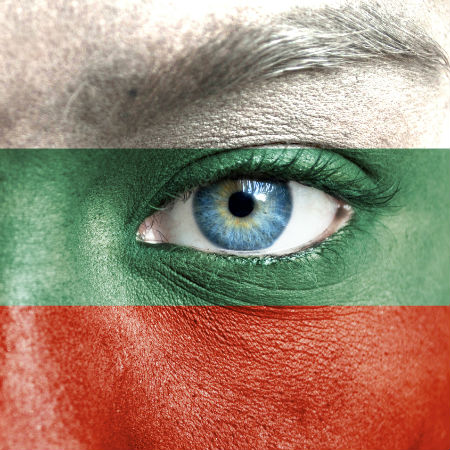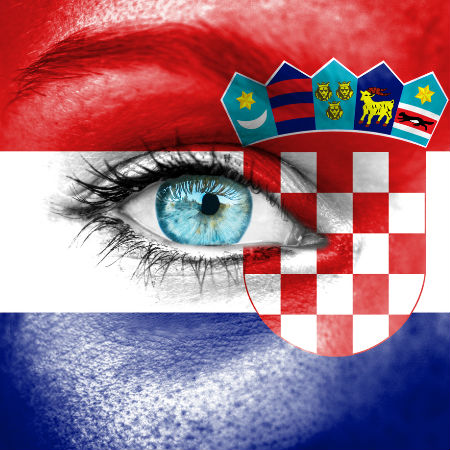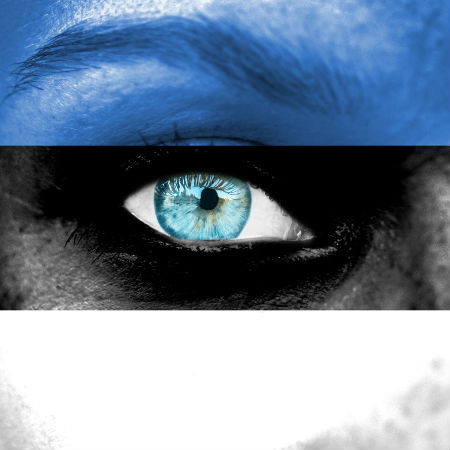
What is the Eurovision Song Contest?
Started way back in 1956 as a way of drawing a fractured Europe back together with the healing power of music, the Eurovision Song Contest, or Concours Eurovision de la Chanson – the contest is telecast in both English and French – is open to all active members of the European Broadcasting Union, which oversees the competition.
Each country is permitted to submit one song to the contest – a song which is selected by a variety of means, usually a winner-takes-all competition such as Sweden’s renowned Melodifestivalen – which they perform in one of two semi-finals in the hopes of making it to the glittering grand final.
Only six countries have direct entry into the grand final:
* The Big Four who fund most of the contest – UK, Germany, France and Spain
* The host country (which is the winner of the previous year’s contest)
* Italy, who didn’t take part for many years and was re-admitted in 2011 after a 14 year absence (it was one of seven countries that competed in the first event), making the Big Four the Big Five.
The winner is chosen by a 50/50 mix of viewer votes (you cannot vote for your own country) and a jury of music industry professionals in each country, a method which was chosen to counter the alleged skewing of votes based on political and/or cultural lines when voting was purely the preserve of viewers at home.
Past winners include, of course, ABBA in 1974 with “Waterloo” and Celine Dion who won for Switzerland in 1988 with “Ne partez pas sans moi”.
Above all though, the Eurovision Song Contest is bright, over the top and deliciously camp, a celebration of music, inclusiveness and togetherness that draws annual viewing figures in the hundreds of millions.
This year’s contest will be held in Kyiv, Ukraine.
AUSTRIA: “Running on Air” by Nathan Trent

THE ARTIST
For an artist whose song is all about the good and the bad things in your life, Nathan Trent has certainly led a charmed existence to date.
Raised bilingually by an Austrian father and an Italian mother, he grew up learning to play the violin and piano and appearing in productions at the State Theatre in his hometown of Innsbruck, before making his mark in talent shows across Austria and Germany and studying, you guessed it, at the Music and Arts University in Vienna (c’mon it’s not like he was going to do commercial law with that creativity woven into his childhood).
If all those achievements don’t dazzle your Eurovision-loving senses, how about the fact that writes his own songs and was discovered by Austrian broadcaster ORF based on his debut single “Like It Is”, leading to an invitation to represent his home country at this year’s contest?
All in all, not a bad life but can he take the song he co-wrote with Bernhard Penzias and make it even better?

THE SONG
From a sheer likability factor alone, you want him to do well (simmering jealousy as his laudable achievements thus far notwithstanding; oh just me? Well okay then), and certainly “Running On Air” (truth be told, he’s running on snow in the clip but we’ll let that go through on the basis of artistic license), which delightfully combines the musical sounds of John Mayer and Ed Sheeran to highly-listenable effect, puts him in with a real chance.
Granted, it’s not some cutting-edge pop/R&B that redefines music as we know it, and that could lessen his cut-through factor with voters.
Having said, the combination of a catchy song, that occupies rare middle ground niche in a year when it’s ballads and dance number at polarising, duelling 40 paces, that smile and upbeat, bright vocals should deliver up a berth in the grand final at the very least.
BELARUS: “Story of My Life” by Naviband

THE ARTIST
Apparently, Artem Lukyanenko and Ksenia Zhuk, who have performed together as Naviband since 2013, are the yin and yang of musical artistry.
Ksenia, a vocalist, is described as “the bullet” while Artem, who is qualified as a journalist but works as a professional guitar and piano player (hard to say which is the more precarious professional choice: let’s hope his parents didn’t want him to be a doctor) is regarded as the “calm and reasonable”.
While I’m not sure if that means we’ll be treated to a dramatic diva moment by Ksenia while Artem tries to mollify her in between thrown plates and bass guitars, one thing that is certain is that their entry will be the first song sung in Belarussian in the entire history of Eurovision.
It’s not as dramatic a claim as it sounds when you remember that Belarus has only participated in Eurovision since 2004, but it’s great to see an act singing in their national language, particularly given the fact that Belarus is 800 years old this year.
So beside a gigantic birthday cake that must, and I repeat must be included in their onstage performance – guess it didn’t make it into the clip given the logistics of carrying big baked goods into the forest- will they get a lovely crystal microphone to take home?

THE SONG
It would be quite the fairytale finish and frankly if Belarus’s participation in Eurovision this year was being written by Hollywood, or a damn good PR company, it would indeed happen.
As songs go, this one is irrepressibly upbeat and joyously alive, anchored by Ksenia’s gloriously exultant vocals and Artem’s more grounded singing – their voices merge to quite beautiful effect – and benefits in a multitude of ways from being sung in Belarussian , which sounds brilliantly expressive.
You can only hope that people will tap into the exquisitely happy energy of “Story of My Life”, written by Artem – you have to assume he’s had a damn good life; either that or he’s adept at being dirge-like in giddily-merry fashion – which is entirely possible if the live performance is as captivating as the clip.
BULGARIA: “Beautiful Mess” By Kristian Kolov

THE ARTIST
Clearly a man who sees virtue in shirking his domestic cleaning responsibilities of his song title is any guide, Kristian Kolov is one of the babies of this year’s contest, clocking in at the tender age of 17.
But don’t let his baby face fool you – he’s managed to cram quite a lot into his short time on earth (which rather distressingly for those who are not 17, pretty much occupies the 21st century alone).
He kicked things off at 6, going solo at age 11 – thank god because those pre-pubescent boy bands are just THE WORST – taking part in competitions, the high water mark of which was taking part on Russia’s The Voice Kids where past Eurovision entrant Dima Bilan was his mentor.
From there it was off to Bulgaria, chart topping songs in Bulgarian and English, and perhaps a sneaking, whispered subconscious fear that he’s peaked way too early? Prodigies even do existential angst early I’ve heard.
Will Eurovision further cement his meteoric rise or will be spared achieving everything before the end of his teenage years, thus spared a life of heavy drinking and regret? (Just me again? Gotcha).

THE SONG
His song “Beautiful Mess”, proves it take a village of songwriters (Joacim Persson, Borislav Milanov, Sebastian Arman, Alex Omar and Alexander V. Blay) t write a catchy but ultimately forgettable song.
It’s not that it’s a bad song, and in fact is pretty damn lovely at times, but it spends much of its three minute-mandated running time – Eurovision songs can’t exceed the 180 second mark on pain of … frankly I'[m not sure – meandering pleasantly but with little real impact.
Kostov has a lovely enough voice but again nothing out of the box and it’s hard to see this year’s Bulgarian entry doing much more than providing a nice interlude towards the end of the second semi-final when everyone will be getting a little tired from all flag-waving, hollering and glitter inhalation and will be looking forward to kicking back with a cup of tea and some easy listening loveliness.
CROATIA: “My Friend” by Jacques Houdek

THE ARTIST
Jacques Houdek may have 13 albums to his credit, which have attracted gold, platinum and diamond status, he may have performed thousands of concerts, and be a mentor on the voice of Croatia, but what has really made his day, year, in fact all 16 years of his professional career, is that he is representing Croatia at this year’s event.
But don’t just take my word for it.
“Eurovision has been my life long dream, and everyone in Croatia knows this! I have been a fan ever since I was a kid and I’m so thankful for this once in a lifetime opportunity, finally! I am so happy!”
It makes sense that he’d be elated since this is just a case of being the flag bearer for his home country; it’s the peak of his musical journey so far, once defined by a life “completely devoted to music – for me there us no life without it”.
So creative and career boxes ticked but will the reality on the ground, which let’s be honest is not always kind to elation-wrapped, childhood dreams, going to matchthe starry-eyed expectation?

THE SONG
According to his official Eurovision bio, Jacques is known as Mr Voice in his homeland.
Given his vocal multifaceted performance on “My Friend”, he maybe perhaps henceforth as Mr Voices, a fitting musical sobriquet given the fact that he duels with himself, switching between earnest pop ballad warbling and populist operatic singing.
The effect, no doubt intended to be epic and profound, comes across as a weirdly multi-personality disorder that doesn’t fully gel, and conjures up mental ages of Houdek running from one side of the stage to each other throughout the song pretending to be two people (will that count to wards the country’s limit of stage performers I wonder).
It’s a pretty enough song but I don’t think the execution is as successfully in practice as it likely seemed on paper, and while it may summon the necessary chutzpah to catapult Croatia into the grand final, it’s just a little too weird to hand the country the win.
DENMARK: “Where I Am” by Anja

THE ARTIST
If you think that Australia’s sole connection to Denmark is that we have selflessly contributed a future queen to their royal ranks, think again.
We have also, and again selflessly it should be added, given Anja, who was born and raised in Australia to Danish parents, to the people of Denmark to represent them at this year’s contest.
And not just any old entrant, with Anja the winner of the 2014 series of The Voice Australia, and the runner up of last year’s Danish Eurovision selection contest Melodi Grand Prix and a singer who has been singing from a very young age, pet snake in tow, and had YouTube videos to prove it.
She has the credentials, and she has a love of her other homeland, and newly-polish Danish-speaking skills, but she have the song she needs to make Princess Mary and the entire nation proud?

THE SONG
“Where I Am” kicks off pretty spectacularly with some intense, almost acapella chanting.
So far so good. But then the song by Anja Nissen, Michael D’Arcy, Angel Tupai – see she writes songs too! – slows down and becomes a little too pedestrian, enjoyable enough in its own way but not possessing enough of a point of difference to really make a mark.
One thing in Anja’s favour is her voice which is more than up to the task; unfortunately while the song may kick up a gear live, highly likely if the video is any guide, it’s simply not distinctive to win the contest for Denmark, Anja’s childhood dream or not.
My only worry is that by not unabashedly supporting the song I may have cost myself afternoon team with Princess Mary but that’s a risk I’m willing to take.
ESTONIA: “Verona” by Koit Toome & Laura

THE ARTIST
Bow before Estonia’s entrants, ye peasants, for they are apparently widely-regarded as Estonian pop royalty, a power couple who have the rare distinction of representing their country in 2005 (Laura as part of group Suntribe, “Let’s Get Loud”) and 1998 (Koit, “Mere Lapsed”) as solo artists, and now as a duo.
They come from quite different worlds with Koit bestriding the world of musical theatre and Laura as the head of the Estonian Jazz Union, which is less militant than it sounds, organising jazz concerts right around the country, but together are channelling the spirit of Romeo and Juliet for their performance. (Hopefully without the tragic double suicide which, let’s face it, would be a major downer for the telecast.)
When they are not making each other laugh – it’s an occupational hazard it seems, triggered either by Laura’s odd improvisational vocal warmup exercises. or by Koit’s pre-performance weird walks – they are, we’re assured, an amazing team who will, in all likelihood knock our figurative socks off.
But there is hype and then there is reality – where on this showbiz spectrum do Estonia’s newly-minted duo (a surprise to them and their fans; I smell a concocted entry) fall?

THE SONG
“Verona” isn’t exactly coy with the Romeo and Juliet allusions, rather clumsily inserting them into just about lyric.
It doesn’t exactly work all the time – the music is reasonably catchy though hardly a standout and the lyrics sound oddly forced, but the manufactured duo’s voices do meld rather pleasingly, with Laura do much of the heavy lifting when it comes to making a vocal splash.
Again, this is a case of not a bad song, one that could quite possible grow on you with repeated listens, and may do well on the night with an inspired staging, but it’s not going to be the talk of semi final 2, and doesn’t stand any real chance of taking Estonia to the grand final.
The one caveat on that is a knockout live performance, which has been shown to elevate less than stellar songs, which both performers are eminently capable of delivering.
Interesting comments, especially as the book makers would contradict you on some of the accounts dramatically.
I agree with you more than with the bookmakers, so let’s hope you’re right and they are wrong 🙂
Haha I am usually proved reasonably wrong so don’t count on me too much. I’m always surprised by what gets up and what doesn’t 🙂